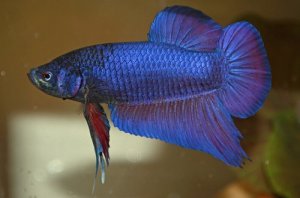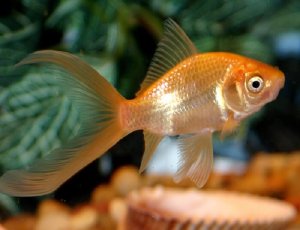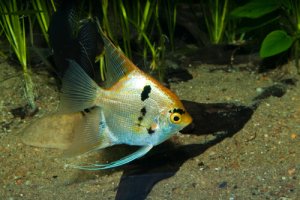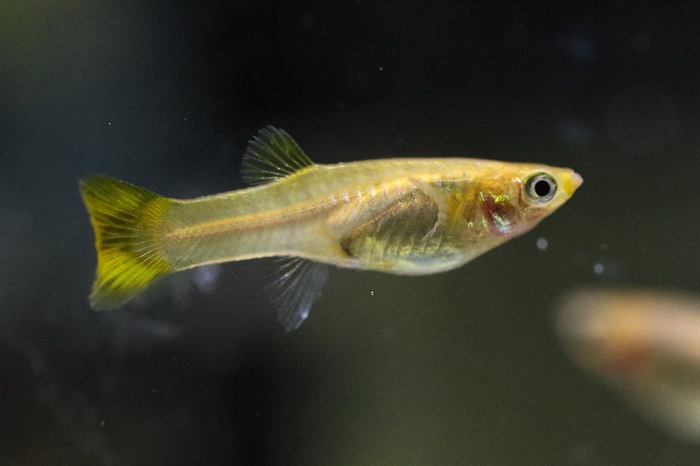
A Guppy lifespan is something that many first-time fish keepers feel that they can’t control. However, did you know that if you give your Guppy fish the right care and habitat, you can actually extend their lifespan to the maximum?
Yes, that’s right! Guppy lifespan is not set in stone, and indeed, you can help your Guppy fish live longer if you know how to carefully attend to their needs. Read on to find out what factors affect Guppy’s lifespan, and how you can optimize them.
What Is The Average Guppies Lifespan?
To give a simple answer to the question ‘What is the average Guppies lifespan’, most fishkeepers give an estimate of 1.5-3 years. This sounds like quite a large range. Indeed, Guppy’s lifespan can vary significantly based on the care they receive, and the conditions they are kept in.
Naturally, you want to enable your Guppies to live as long, happy, and healthy lives as possible. Fortunately, with good care, this is very achievable. These are hardy fish, and it’s not too difficult to meet their needs and even exceed them. Read on for the key points that you should focus on if you wish to extend the Guppy fish’s lifespan.
What Factors Affect Guppy Lifespan?
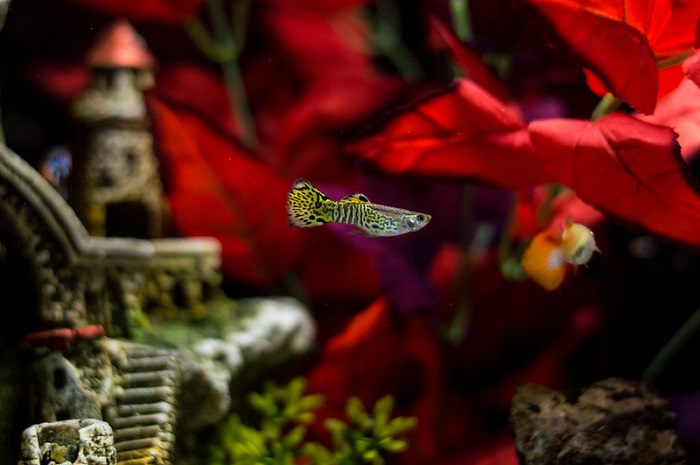
Water Quality
Although Guppy fish lifespan depends on multiple factors, if there was one that could be singled out as particularly significant, it is this. Why is water quality so important to Guppies’ lifespan? Well, imagine you lived somewhere with fresh air and plenty of space. Naturally, you would be healthy than if you lived somewhere with pollution.
To Guppy fish, the water they swim in is the same as the air that we breathe. If you wouldn’t want to breathe dirty air, ensure your Guppy fish don’t have to swim in dirty water.
How Do I Maintain Optimum Water Quality?
Fortunately, it’s easy to maintain optimum water quality for Guppies. Read on to find out how:
1. Tank Size
To start off with, choosing a tank of large enough size is important to ensure your Guppies’ waste does not build up too much or become too concentrated in the water. Ideally, ammonia levels should be at zero all the time, and nitrite and nitrate levels should be similarly low.
An aquarium of 30 gallons for a group of 5-6 Guppies is sufficient. Remember that Guppies need to be kept in groups! A good rule of thumb is 5 gallons per Guppy fish.
2. Plants
Did you know that many common aquarium plants actually filter nitrates and nitrites? By keeping a planted aquarium you actually minimize the toxicant levels in your aquarium. However, it is less known that they are very effective in assimilating and remediating nitrates. In fact, there are some reports that a well-planted aquarium does not need a filter. That being said, it’s always best to use a filter just in case.
To choose plants, remember that the following varieties work well for Guppies:
- Guppy grass
- Cabomba
- Water milfoil
- Java fern
- Java moss
- Marimo moss balls
3. Water Changes
No matter how well you set up a tank for your Guppies, you still need to change the water. This should be done once per week. Change a third of the water and replace it with fresh, filtered water.
How do you do this? It’s simple to use an aquarium vacuum. Move this suction pump over the substrate of your tank. Here, it siphons up detritus and any uneaten food as well as fish waste that accumulates at the bottom of the tank, and channels the dirty water out the other end, where you can let it fall into a bucket.
4. Filtration
Although some aquarists say that a planted tank can mean you don’t need a filter, it’s best to have one on to be on the safe side.
Filters come in many different strengths. Guppies are moderately strong swimmers, they are certainly not fragile, but due to their flowing tails, they are not necessarily as strong as barbs or certain species of hardy goldfish.
The best filter types for Guppies tend to be sponge filters or HOB filters (hang-on-back filtration). These are both gentle filters that mean your Guppies won’t get stressed by a strong current. However, if you’re going for a larger aquarium – above 30 gallons/114 liters – a canister filter is recommended due to it’s ability to deal with greater quantities of water. However, you should still ensure your filter flow rate is roughly 4x the tank capacity per hour.
Author’s Note: If using a sponge filter, it’s also best practice to wash it in some of the tank water every 3 months. Don’t wash it in clean water, or you will destroy the beneficial bacteria that have built up.
Feeding
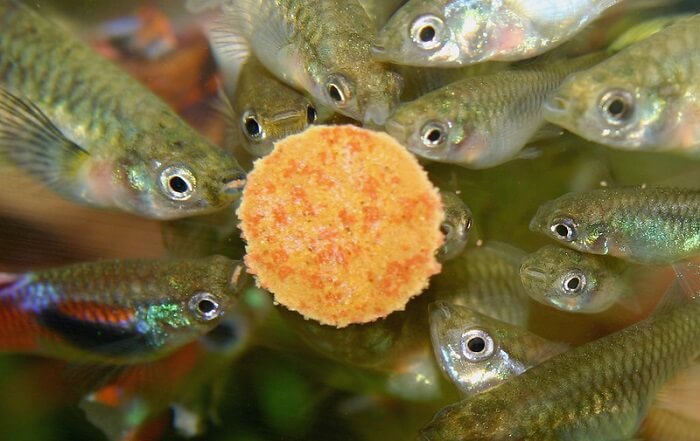
What to feed your Guppy fish? You may find processed flake food in pet shops that is formulated for other warm water fish and this can make an ideal base for your Guppy fish’s diet. However, this should not be the only thing they eat.
If you want your Guppy to live their maximum lifespan, you should ideally enrich their diet with other foods. One of the best sources of this is protein. Protein can take the form of live swimming invertebrates such as brine shrimp and daphnia, or you can buy these same small creatures pre-frozen in the freezer section of your aquatics store online.
Author’s Note: Your Guppy fish’s lifespan depends not just n what you feed it but on it being able to fully express natural behavior. This includes hunting, as in the wild, Guppy fish chase small aquatic invertebrates. Therefore, if you can get your hands on it, free swimming live food is a great choice as it stimulates your Guppy and keeps them occupied.
How Does Diet Affect Guppy Fish Lifespan?
As a bottom line, Guppy fish that are fed an enriched diet tend to live longer than ones that are only fed on flakes. Generally, these guys need to have the variety and stimulus that a protein-enriched diet provides. However, you should also be cautious of overfeeding and underfeeding, as these can cause your Guppy to get sick.
Overfeeding:
What are the consequences of overfeeding Guppies? In short, your fish will get a digestive upset. This can lower their lifespan as it makes them more prone to other diseases and increases general biological stress for them.
However, it can also impact water quality, as uneaten food will rot and release toxins. In addition, fish that are overfed will produce much more waste. Thus, you should only feed your Guppies what they can eat within five minutes.
Underfeeding:
Underfeeding tends to be a less common problem than overfeeding. However, it’s still dangerous. Underfed fish will be lethargic and more susceptible to infection. A good rule of thumb is to feed your fish that they can eat in five minutes, starting small, and slowly adding more food until they stop gathering near the surface of the water and are no longer hungry.
Genetics
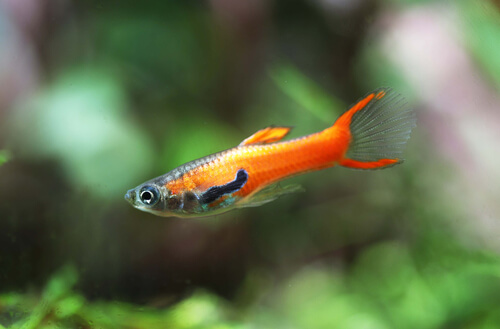
There’s not a lot that even the most experienced fishkeeper can do about this one! Genetics can play a factor in your Guppy’s lifespan, and fish from a reputable breeder or aquatics store will tend to be hardier and live longer.
That being said, some fish simply have good genes – and tend to live longer. In addition, did you know that males with bright colors tend to use these in the mating process?
Just like their color throughout life, it tends to be a surprise as to how long your Guppy lives. You never know – some fish surprise their owners by living much longer than expected.
Male-To-Female Ratio
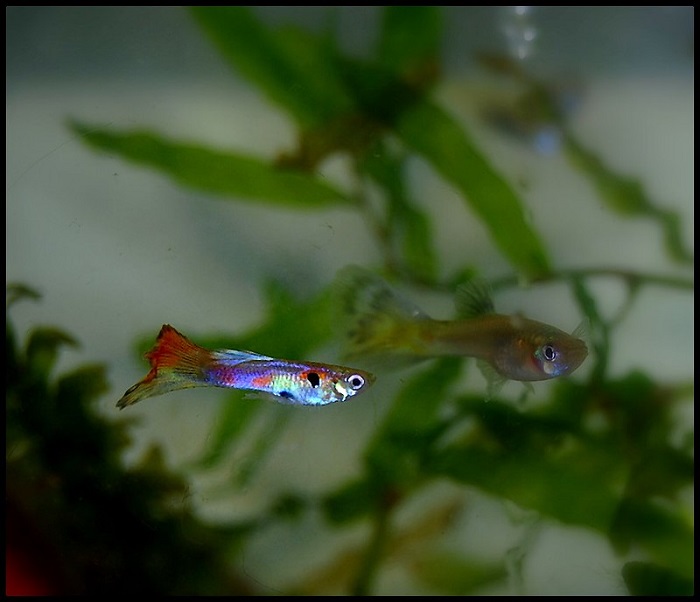
It may surprise you, but the ratio of male Guppies to females is important for female Guppy lifespan. Why is this? The truth is, male Guppies can occasionally stress females out if you keep too many with them.
Unfortunately, these rapid breeders can occasionally harass and chase female fish. This can lead to your female Guppies getting stressed. Sneaky attempts to mate can, however, depend on whether your Guppies perceive there to be predators. Therefore, keep an eye out too on whether tankmates are stressing out your male Guppies.
To prevent this in general, one to two males for every three to four females is a good ratio if you want to keep both sexes together. Alternatively, you can keep all females. All males can sometimes be tricky due to issues with aggression
Author’s Note: Stress can have a big impact on fish lifespan for any species! That’s why it’s important to observe the behavior amongst your fis, as well as just their physical conditions. Stress can make your fish more susceptible to disease, and territorial disputes can cause fin nipping, which can lead to bacterial infection.
Pregnancy And Giving Birth
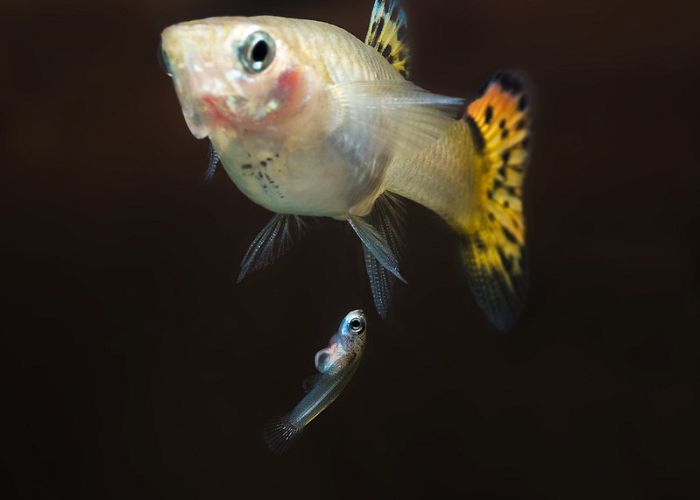
One major reason for premature Guppy death in females is pregnancy complications. If you are not looking to breed your Guppies, it can help to prevent your females from getting pregnant in the first place by keeping them separate or opting for a male-only tank.
What can happen during pregnancy? If the female struggles to give birth to some of the live young, this generally tends to be fatal. In tanks where you have not specifically planned to breed, the conditions may not be right for pregnancy, leading to labor complications.
Wider Environment
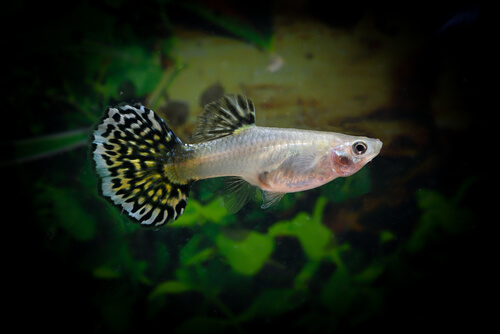
What Is The Best Environment For Optimum Guppy Lifespan
When you purchase Guppies from an aquarium store, you may see many fish kept in a small tank without much decoration or plants.
These tanks are never intended to keep fish for their whole lives! Mimicking these conditions at home will always be very harmful to your fish. Guppies need a varied environment with plants and plenty of areas to express their natural behavior. Unfortunately, there is lots of misinformation due to the hardiness of these fish.
In truth, a varied and enriched environment will always be better for your fish. Just because you can keep them in simple conditions, doesn’t mean you should.
How To Encourage Your Guppy’s Natural Behavior
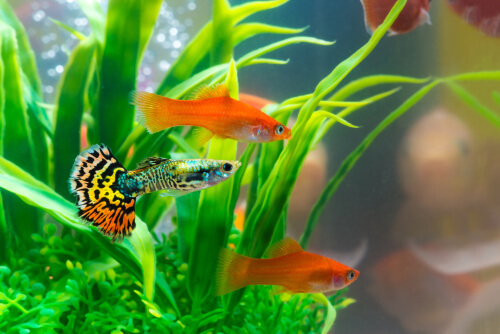
Keeping your Guppy happy is great for extending lifespan. If you want to encourage natural Guppy behavior, setting up the tank with hiding holes and other places to swim through is key. Stones, plants, and driftwood all make good additions.
Guppies can be territorial. Therefore, larger tanks that have separate ‘areas’, separated by stones or otherwise, can be good for helping keep the peace in your fish tank.
Tankmates
It may be tempting to think that the more the merrier, but sometimes, tankmates can stress your Guppy out. This can be the case if you haven’t chosen compatible tank mates. For example, betta fish can occasionally make good Guppy tankmates, but only with less aggressive bettas. Even then, it takes some experience, as betta fish can view your Guppy’s flowing tail as a threat or competition, and vice versa. Thus, territorial disputes can break out.
In general, the best tankmates for Guppy fish tend not to compete with them in any way. Lack of competition is crucial for minimizing stress and thus allowing your Guppies to live to their full lifespan.
Disease
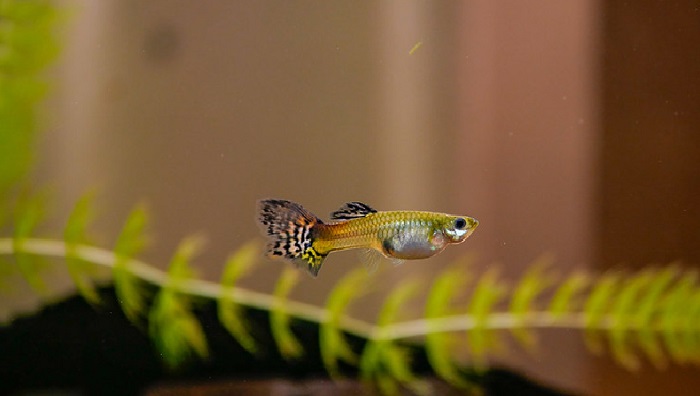
Guppies are generally hardy, but the diseases that affect them are much the same as any other freshwater tropical aquarium fish.
These can generally fall into two categories: bacterial and fungal infections. In addition, there are also diseases that can arise from poor tank conditions, such as ammonia burns.
How Spotting Disease Can Extend Guppy Lifespan
Fortunately, if you spot these diseases early they need not impact your fish that much. Both bacterial and fungal infections can be treated by quarantining the infected Guppy, and then using a course of over-the-counter medication, following the packet instructions. Either way, spotting disease early is a good way to prevent Guppies from dying. These are some of the signs to look out for:
- Lethargy
- Not eating
- Hiding
- Difficulting staying afloat in the water (swim bladder disease)
- Unusual colored fins or markings (can be ammonia burns, parasites like velvet diseases, or even fin rot)
- Ragged, sore-looking fins
These are just a handful of Guppy disease symptoms. Remember, lethargy and appetite loss in Guppies can also result from pregnancy. As a rule of thumb, however, a diseased Guppy will show other signs, such as your Guppy turning black or white, whereas a pregnant Guppy will not.
Final Thoughts
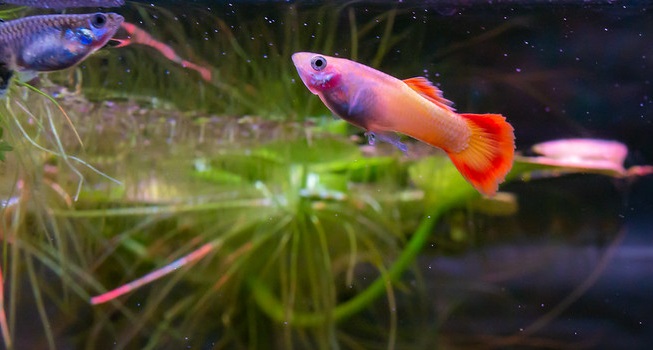
Overall, if you want to know ‘how to get the best Guppies lifespan’, remember there is no single magic bullet. Looking after your fish in every aspect will ensure they live long and healthy lives. However, this means taking into account water quality, environment, food, tankmates, and many other factors – all in combination.


